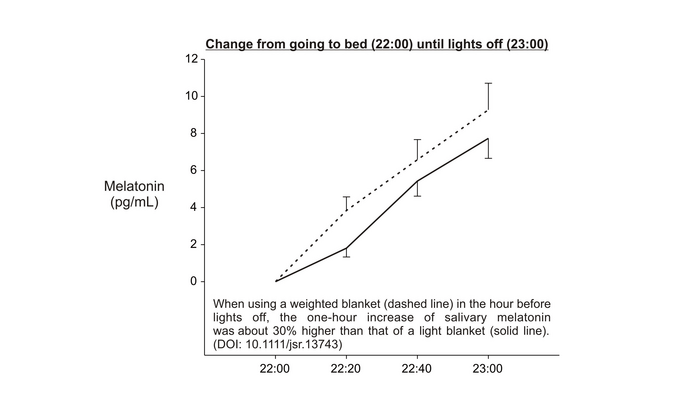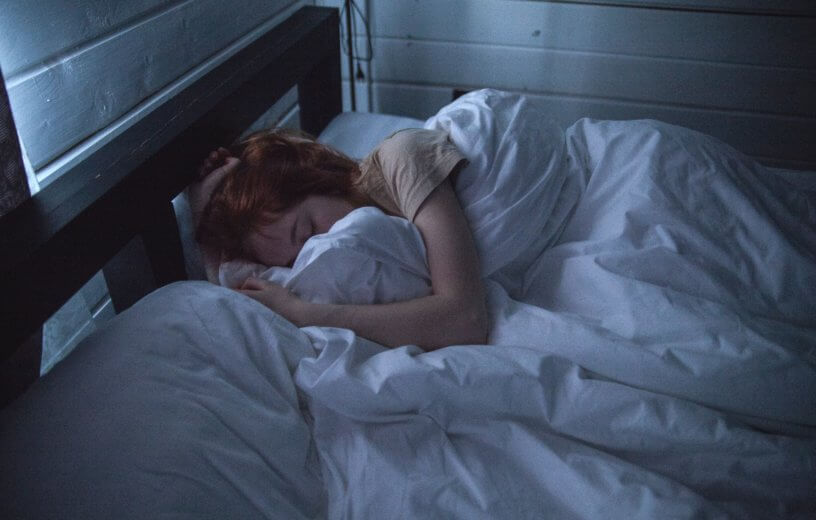UPPSALA, Sweden — Weighted blankets could be a simple solution for those looking to get better sleep each night. A new study shows that young adults using a weighted blanket increased their production of the sleep-promoting hormone melatonin.
Moreover, researchers from Uppsala University say this bedtime strategy also lowered stress levels by helping the body to produce more oxytocin — the “love hormone.”
Previous studies have found a link between using a weighted blanket and easing the symptoms of insomnia. In this experiment, researchers examined 26 young men and women while they used a weighted blanket at bedtime. These blankets carried 12 percent of the user’s body weight. To measure stress levels, the team collected saliva samples while they covered themselves with either a weighted blanket or a light sheet. Saliva allows scientists to measure melatonin, oxytocin, cortisol, and the activity of the fight and flight sympathetic nervous system.
Melatonin increases by a third
“Using a weighted blanket increased melatonin concentrations in saliva by about 30 percent. However, no differences in oxytocin, cortisol, and the activity of the sympathetic nervous system were observed between the weighted and light blanket conditions,” reports study first author Elisa Meth, a Ph.D. student at the Department of Pharmaceutical Biosciences at Uppsala University, in a media release.

“Our study may offer a mechanism explaining why weighted blankets may exert some therapeutic benefits, such as improved sleep. However, our findings rely on a small sample and investigated only the acute effects of a weighted blanket. Thus, larger trials are needed, including an investigation of whether the observed effects of a weighted blanket on melatonin are sustained over longer periods,” adds senior author Christian Benedict, Associate Professor of Pharmacology at the Department of Pharmaceutical Biosciences at Uppsala University.
The findings appear in the Journal of Sleep Research.

